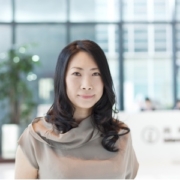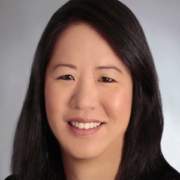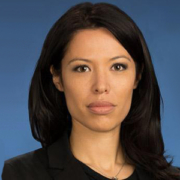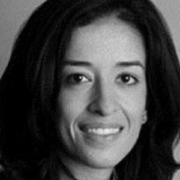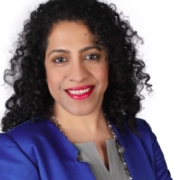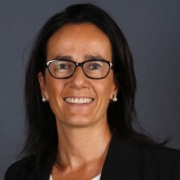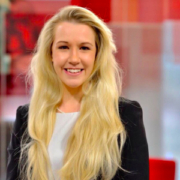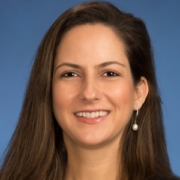Voice of Experience: Charlotte Hsu, Asia Pacific Diversity & Inclusion Leader and Singapore General Assurance Partner, PwC
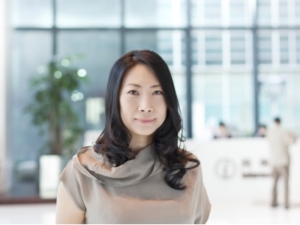 From her leadership vantage point, PwC’s Charlotte Hsu knows that it is critical to help build a robust pipeline by encouraging other women in the industry.
From her leadership vantage point, PwC’s Charlotte Hsu knows that it is critical to help build a robust pipeline by encouraging other women in the industry.
“Now that you are there, don’t forget to look out for the little girls who were once you,” she says.
To that end, Hsu herself devotes time to helping bolster the careers of younger colleagues. The key, she shares, is that while basic technical competency or product knowledge is important, soft skills—or as she calls them, “fundamental skills”—are equally or more important in advancing your career. In fact, that attitude is what allowed her to build her audit career.
An Unconventional Start Leads to a Successful Audit Career
Hsu was a groundbreaker from the start, considering that she did not graduate with an accounting degree, yet is now an assurance partner in a Big Four firm. When she started her career in Singapore in the ‘90s, the most attractive jobs were management trainee programs with banks and oil and gas companies; however, as she acknowledges, her university grades weren’t sufficient to earn a spot in one of those programs.
Instead, she pursued qualification as a Forex dealer and life insurance agent—also lucrative professions—and it was through her insurance instructor that she became introduced to the auditing profession. She found herself fortunate to be recruited by a Big Six firm as an audit trainee, the program offered to non-accounting graduates.
From there her audit career took off, and she has worked in Hong Kong, New York and Shanghai over the past 20 years. She came full circle back to Singapore in 2011, while still an assurance partner, and was given the opportunity to head the Learning and Development department and is now PwC’s Asia Pacific Diversity & Inclusion partner, as well as a member of PwC’s Global Corporate Responsibility Board. “If I had not taken the chance to try a new qualification and had let my graduate status hold me back, I would not have this career, one that has made my life so meaningful,” Hsu says.
Looking back at her 27 years as an auditor, the professional achievement she is most proud of so far is the relationships that she has built—clients who became good friends and coworkers who are now part of her personal life. “When you have coworkers who are willing to go above and beyond with you, it speaks volumes about the relationship, and to me this is an achievement that outweighs any awards on the wall or the titles behind your name,” she says.
Hsu also is proud of the role she has played in professional development for her colleagues, especially the junior ones. Recognizing the need for job rotation in order to motivate and develop non-client-facing colleagues, she was able to secure buy-in from various stakeholders to allow more junior colleagues to explore short-term internal secondment and job rotations. That has allowed them to develop new skill sets, as well as get out of their comfort zones to take on new tasks.
Right now, she is taking an active role with the PwC’s Global Corporate Responsibility Board to fulfill an ambitious global target they set in 2018: to invest in the future and growth of 15 million people, NGOs and social and micro enterprises to help them maximize their potential by 2022.
“I am excited to be working with my counterparts across the PwC network in coming up with ideas to achieve that ambition,” she says, adding that it is not about meeting the KPI, but the ability to make a significant difference in so many lives. “At PwC, we believe businesses have a key role to play in solving societal challenges, alongside other stakeholders.”
In addition, like many in the field, she is wrestling with the potential for AI to transform the accounting industry. Rather than take over accounting jobs, though, she believes AI will help accountants improve their efficiency and root out fraud detection.
The Ongoing Quest to Promote Balance and Equity
Work-life balance is important, and she dispels the myth she heard back in the day that you have to leave the office after your bosses in order to be promoted. She tells her younger counterparts that it is not impossible to pursue a thriving career and have a family at the same time. “Many people have done it successfully, and there will be more and more such cases,” she says.
Unfortunately she sees that women are often tested when making choices in balancing work and personal lives, largely because the auditing profession is known for demanding hours. “For women who have to put in those hours at work and at the same time fulfill their obligations as a mom—call it maternal instinct or social pressure—most women choose family over career,” Hsu says. And even though they are seeing a rise in the number of men homemakers, the pace of the increase is still slower than that of females leaving their job to assume the role.
That’s why she sees a gap in women who are reaching the upper echelons of the industry. In fact, the fairly equal representation of females in the industry, particularly in managerial positions, should yield a reasonably strong pipeline of highly qualified women to become partners. However in reality they are seeing that women tend to drop out of the pipeline at the managerial level as that is usually the age when they start a family.
Still, she is proud of the strides that PwC has made, with women making up approximately 53 percent of managerial positions and above. As a Diversity & Inclusion partner, she has the privilege of sitting in promotion meetings to encourage equal opportunities and diversity in decision making. The firm recently reviewed its internal policies for everything from recruitment to job allocation to promotion to ensure there are no policies biased against women. In the coming months they will be running a refresher program on unconscious bias and are looking into better support for new parents and women returning from maternity leave. “We understand that returning to work after maternity is tough; thus if we are able to help smoothen the transition, we believe more new mothers will choose to stay in the profession,” Hsu notes.
Her own “off time” includes indulging in a wide variety of interests that include cooking, cars, collecting whisky, electronic gadgets and video games—in fact she just bought a VR set for the home. But what interests her most is finding ways to help the elderly and less-privileged women. “We talk a lot about gender equality but often times it’s in reference to professionals. We should not forget to care for those less-privileged women around us who are not professionals,” she points out.

